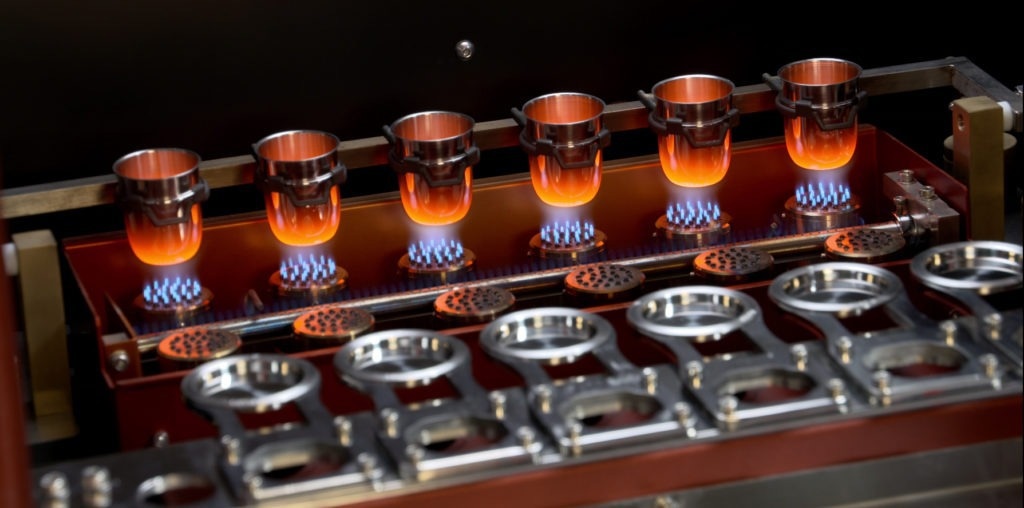Sample preparation involves the treatment of a sample before analysis. In XRF applications, the better the sample's preparation, the more precise the results become. Different methods for sample preparation offer distinct advantages.
This article, in particular, will focus on the utilization of a fusion machine for preparing XRF samples.
Fusion Sample Preparation
For XRF analysis, fused bead creation via fusion provides a nearly perfect, homogeneous sample representation. This method is ideal for solid samples.
Gas and electric fusion machines can be used to perform this sample preparation. Fused beads are produced by combining a flux with finely powdered samples and heating the mixture to temperatures ranging from 1000 °C to 1200 °C in a platinum crucible.
This process dissolves the sample into the flux, and it is then cast into a mold. This results in the creation of a fused bead devoid of mineral structures. Fusion machine-based sample preparation diminishes matrix effects, enhancing analysis accuracy. It also permits the combination of multiple samples in the same calibration process.
XRF Scientific's fusion machines utilize borate fusion, a process that dissolves oxidized samples in molten flux.
Common samples prepared through borate fusion include ceramics, rocks, ores, and cement. Sub-oxidized samples can also undergo borate fusion after an oxidation step. Lithium tetraborate and lithium metaborate are typical fluxes used in borate fusion.

Image Credit: XRF Scientific
Gas or Electric Fusion Machines
XRF Scientific offers both gas and electric fusion machines for XRF sample preparation, each with unique advantages. Both electric and gas fusion machines ensure long-term reliability, reducing the need for maintenance and machine downtime. Additionally, reactions within the machines are observable.
Gas machines provide the highest level of automatic throughput, facilitating efficient sample preparation with minimal sample contamination. Electric automatic machines offer zero sample contamination and high automatic throughput. Manual electric machines provide straightforward operation and the highest level of manual throughput.
Fusion Machines from XRF Scientific
XRF Scientific provides a range of gas and electric fusion machines for sample preparation. XRF Scientific's team is also on hand to offer support and guidance when selecting the most suitable fusion machine for specific applications.

This information has been sourced, reviewed and adapted from materials provided by XRF Scientific.
For more information on this source, please visit XRF Scientific.